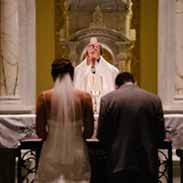The Ojibwa – Flashcards
Unlock all answers in this set
Unlock answersquestion
Ojibwa
answer
a native American group living in the northern Midwest in the United states and south central Canada, refer to themselves as Anishinaabe= human being.
question
Anishinaabe
answer
human being
question
4 division
answer
1. Salteaux (northern Ojubwa)-canadian shield north of lake superior and south and west of husdon and james bays 2. The plain ojibwa(bungee)-southern Saskatchewan and manitoba 3. The southeastern Objiwa -michigans lower penisnsula, eastern upper peninsula, and adjacent areas of Ontario 4. Southwestern Chippewa-north Minnesota, extreme northern Wisconsin, Michigan western upper peninsula, and Ontario between lake superior and the Manitoba border.
question
history
answer
• Ojibwa were heavily involved in the fur trade for European goods • Desire for European goods left to intertribal conflict centering on the rights to exclusive fur-trading privileges, especially fierce between the Iroquois and the Huron. • Ojibwa under Iroquois. Fight for independence. They expanded south and west. • Became dependent on trade with Americans. In winter when no food, they had to give up lands. Salt, tobacco, hunting and fishing rights southeastern Ojibwa ceded their territory. • Ojibwa who had been resettled on reservations could neither fish not gather wild rice on land unsuitable for these economies. • With the advent of the fur trade, iron tools, cooking utensils, as well as guns and alcohol were introduced, with tremendous consequences. • The European system of buying and selling introduces to the indigenous peoples a system of "debt" with which they were unfamiliar. Goods were sold to hunters on credit, with payment in furs expected subsequently.
question
Settlements
answer
• Guided largely by the seasons, and varied among groups as their environments varied. • Established semipermanent villages in the summer and maintained temporary camps during the rest of the year, in keeping with their need to move in order to efficiently exploit fish, game and wild plant resources.
question
kinship and sociopolitical organization
answer
• Ojibwa were organized into small autonomous bands of interrelated families. • Flexible groups with an egalitarian structure • Kinship terms, used as both reference and address, functioned not only to identify the relationship of one person to another, but also as a vehicle to guide behavior and express the content of role relations and expectations. • Kinship terms direct social interaction • Organizes into a number of exogamous totemic clans, with membership reckoned patrilineal. • Most marriages were monogamous even though polygyny was possible. • No political chiefs but there was one individual designated by a trader, and an official relationship was structured between these two men, a vitally important link for the trader whose livelihood depended on maintaining his access to pelts. • Among the 18th century: band were headed by less formal chiefs; as farming and more permanent settlement patterns were encouraged by the govt, an elected chief, assistant chiefs and a local council became the characteristic local political organization. o Derived primarily from their function as trade representatives • The true seat of individual powerindigenous healers
question
Ojibwas Culture
answer
• No sharp division between the natural and the supernatural • All plants and animals are controlled by their owners • The catergory of persons includes not only themselves- Anishinaabe, human beings- but also animate beings who are not human.
question
Religion view of the world
answer
• Religion features: dreaming, fasting, visions, and above all else: "the grandfathers", the other than-human beings. • Primary contact between individuals and these other beings is achievied during dreaming. During sleep the soul breaks free of the body, allowing the most intense contact with other than human beings. • The dreamer is to remain silent, because boasting is unacceptable and because it jeopardizes one's ability to hold onto the power received. • Some cases there are food taboos are imposed by guardian spirits who are owners of that animals species. Or items of clothing/adornment associated through muth with the bestower of one's blessings must be worn. Or contact with certain individuals is prohibited.when a dream is revealed to you. • The fear of falling ill function as a powerful sanction against behavior that falls to conform to that which is expected.
question
the shaking tent
answer
• Is a performance aimed at divining information not available through other means. • The diviner enters the tent after dark with the assembled audience outside. Has "pawaganak" his own guardians. • It is not only the movement of the tent that signals the arrival of the pawaganak; they can also be heard to respond to the diviner's song with singing of their own.
question
The midewiwin
answer
• Means mystic doings of the Mide (mystic) society, sometimes referred to as the grand medicine society. • The Midewiwin is an organized society of men and women who possess the knowledge to cure by the use of plants and herbs.
question
Ojibwa Today
answer
• In 1950s a government relocation program attempted to reduce reservation living by urging Native Americans to migrate to urban areas and assimilate into mainstream American society. • 1970s: govt policy began to become more sensitive to the needs and desires of native americans, and both laws and funds began to be aimed at preserving traditional culture.
question
Tribal casinos
answer
• Gaming in tribal owned casinos has garned popular attention and is a source of debate both within native communities and without
question
environmental degradation
answer
triumph over pijibowin • Pijibowin= poison • Protesting for environment. Against exxon.



